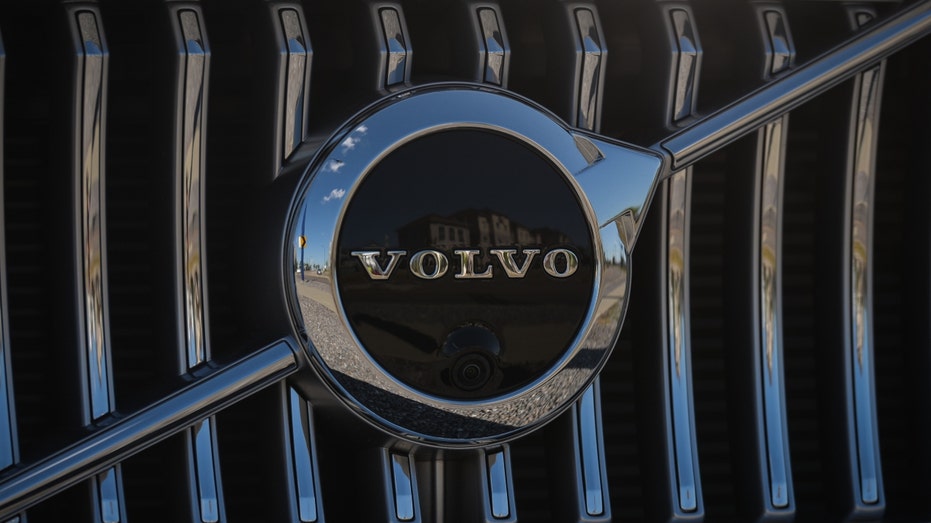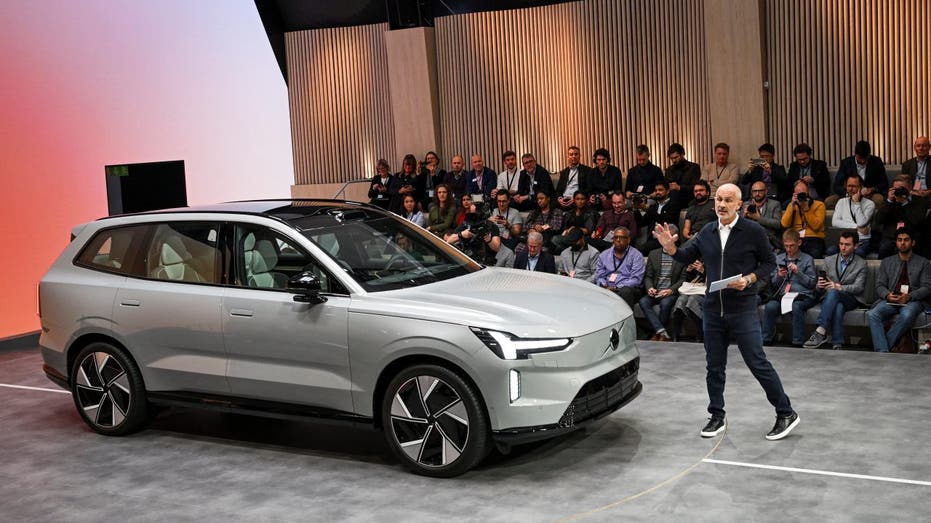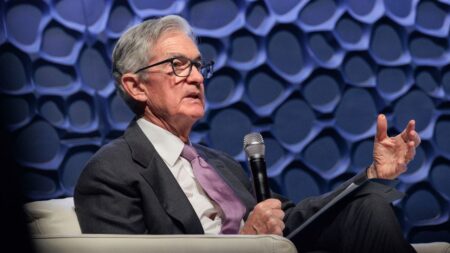Volvo on Wednesday announced that it is dropping its goal of making only electric vehicles by 2030, saying it now expects it will still be offering some hybrid models as part of its lineup at that point.
The Swedish company and other automakers have seen slowing demand for EVs as price-conscious car buyers turn to hybrids and gas-powered vehicles over affordability concerns as well as access to charging stations.
Volvo and other EV makers are also bracing for the impact of European tariffs on electric cars made in China, a move that follows similar steps in the U.S.
In a statement, the company said it is aiming for 90% to 100% of its 2030 global sales volume to consist of fully electric EVs and plug-in hybrids, with the remaining zero to 10% of its lineup allowing “for a limited number of mild hybrid models to be sold, if needed.”
HARRIS CAMPAIGN SAYS DEM NOMINEE ‘DOES NOT SUPPORT’ ELECTRIC VEHICLE MANDATE IN ATTEMPT TO FLIP THE SCRIPT
The reversal of plans to be fully electric by 2030 comes as the company expects the percentage of its electrified lineup — which includes EVs and hybrids — to be between 50% and 60% by 2025. Its share of fully electric vehicles was 26% in the second quarter of 2024, while EVs and hybrids combined amounted to 48% of its electric lineup.
| Ticker | Security | Last | Change | Change % |
|---|---|---|---|---|
| VLVLY | VOLVO AB | 25.31 | -0.43 | -1.67% |
“Volvo Cars remains committed to its long-term ambition of full electrification, and the company’s long-term investment plan and product strategy remains geared towards fully electric cars,” the company said in a statement. “The adjustment to its ambitions is not expected to have any material impact on the company’s capital expenditure plans.”
TESLA HALTS ORDERS FOR $61,000 CYBERTRUCK, CHEAPEST VERSION NOW $100,000

Drivers have turned to hybrids more frequently in the last year amid concerns about the range of EVs and availability of charging infrastructure. Hybrid models are often more affordable than their full-EV peers, providing consumers with a cost advantage at a time of high interest rates on auto loans.
A study by J.D. Power published in May found that anxiety about the availability of charging stations was the leading reason car shoppers were disinterested in EVs, with 52% citing that as a reason for diminished EV interest.
That figure was up three percentage points from a year ago, suggesting that “concerns about public charging infrastructure are only getting worse,” J.D. Power wrote.
MARTHA STEWART LOVES EVS: DOES SHE PREFER TESLA OR RIVIAN?

Despite those concerns among consumers in the near-term, Volvo remains bullish on EVs and hybrid electric options as the future of its lineup.
“We are absolute in our belief that our future is electric,” Volvo CEO Jim Rowan said in a statement. “An electric car provides a superior driving experience and increases possibilities for using advanced technologies that improve the overall customer experience.”
“However, it is clear that the transition to electrification will not be linear, and customers and markets alike are moving at different speeds of adoption,” Rowan explained. “We are pragmatic and flexible, while retaining an industry-leading position on electrification and sustainability.”
Reuters contributed to this report.
Read the full article here










